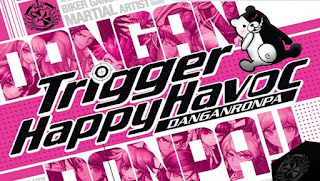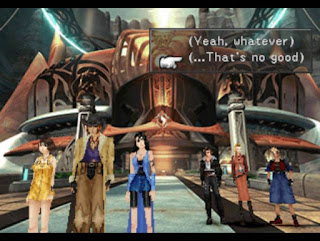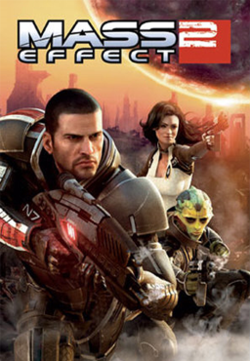Chime - 2016 - Vita/3DS/PC
At last we finally have the conclusion to the Zero Escape series after it appeared for a couple years that this game wouldn't get funding due to relative poor sales of the previous two games in the series. Although I'd have to admit all games in the series are pretty flawed in one way or another, I'd still recommend giving these a look if you're down for a pretty well written mystery/thriller with an unmistakably Japanese flavor. So before we go any further, know that THIS REVIEW WILL CONTAIN LIGHT SPOILERS FOR 999 AND VIRTUE'S LAST REWARD because I have no idea how to discuss this series' convoluted plot otherwise
Zero Time Dilemma begins in December of 2028 at the Dcom facility in Nevada and takes place after the events of 999, but before the events of Virtue's Last Reward. Sigma and Phi have traveled back in time and joined what is known as "The Dcom experiment" in order to prevent the outbreak of the Radical-6 virus which has killed most of Earth's population in the future. They are joined by Junpei and Akane from 999 who have been tracking the movements of a terrorist organization known as "Free the Soul" whose objectives also include destroying humanity. They are joined by heroic firefighter Carlos, sad sack Eric, seductive Mira, a somehow familiar looking girl named Diana, and a young boy boy has no memory and wears a strange capsule on his head. As part of the Dcom experiment, the group of them are (of course) locked in a facility and forced to play a deadly "decision game". The group is forced to split into 3 teams and told that at any point if 6 people are dead, the remaining survivors will be allowed to escape. Additionally, every 90 minutes a drug from the participants bracelets is injected which puts them to sleep and wipes their short term memories. Pretty crazy stuff
The story of Zero Time Dilemma is told in 90 minute "fragments" where you choose what team you'd like to follow and watch what events play out over the next 90 minutes. Only you initially have no idea where those 90 minutes fit into the grand timeline of the game. Sometimes you'll start a fragment and half of the group will be already dead and you'll have no idea why. I actually found this approach to storytelling a little annoying and hard to follow as I never knew where in the timeline I was and near the end I couldn't keep track of all the reveals of who was dead and who was alive and why.
After 999's static images and fixed camera, Virtue's Last Reward introduced voice acting and full 3d models with moderately successful results. Zero Time Dilemma takes it even farther with a much more distinctly cinematic approach to portraying its story. Zero Time Dilemma uses much more camera panning and animations during cutscenes. This is a slightly less successful transition unfortunately. It was pretty clear that the animation team was either rushed or not very experienced. Animations are jerky and forced and the lip sync is pretty questionable. It personally didn't bother me too much, but it was certainly notable and I know a lot of people will find the stiff animations a distracting drawback
I thought the puzzles in Zero Time Dilemma were some of the best of the series. They were varied, interesting and had me pulling out actual pen and paper to work through problems. Depending on the order of the fragments you play, the pacing of the puzzle rooms can be a little weird though. In my experience, I had tons of puzzle rooms in the beginning and middle of the game, but almost none near the end which made playing through the end of the game more like watching a movie. Speaking of the end... it was kind of a let down. Without discussing any spoilers, the ending was sort of plain and disappointing which was a surprise in of itself since 999 and Virtue's Last Reward had such huge reveals and shocking twists. Ahh well, it was still nice to finally have some sort of closure for this series.
Summary
Regardless of what the marketing of this game wants you to believe, you can't play it without playing the first two games first. Or at least you shouldn't. Start there first or else you'll likely be massively confused. For veterans of the series, this game will offer some closure for the story, albeit a slightly disappointing one. I still must admit I enjoyed this game a lot as it features some of the strongest puzzle rooms in the series. The Zero Time Dilemma journey is much more enjoyable than the destination, and the journey is worth it.

































